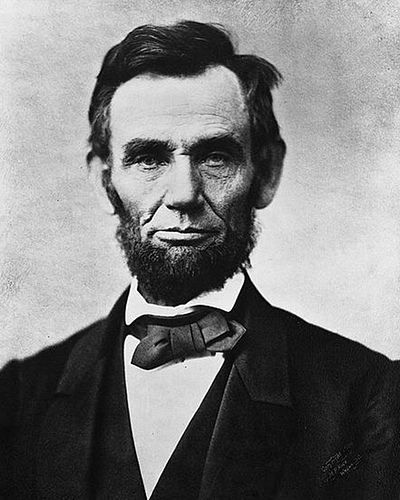Published on
Abraham Lincoln – Founding Dean of Lifelong Learning

There have been numerous stories exchanged and retold about Abraham Lincoln over the years. Many historians highlight his examples of perseverance in overcoming vast obstacles in his life. He never gave up despite overwhelming challenges, uncertainty, and differences of opinion. This is true; Lincoln is an icon in overcoming adversity. Much of this stems from his approach to lifelong learning and education, which is truly remarkable. He could be one of the founding Deans of Lifelong Learning.
There are various definitions of lifelong learning. Ultimately, it is an active process of learning throughout one’s life, with the aim of improving knowledge, skill mastery and competence, within a personal, civic, social and workforce related perspective. This is the marching anthem for continuing education professionals who understand learning never stops across the lifespan. Abraham Lincoln embodied the tenets of this philosophy well before the industry of continuing education was on the map.
Like da Vinci, John D. Rockefeller Sr., Steven Spielberg, and Mark Zuckerberg, Lincoln received almost no formal education as he embarked on a quest for learning and self-improvement. He was an avid reader in his youth, beginning with the Bible and Shakespeare. Later on, as member of the House of Representatives, he spent countless hours reading books in the Library of Congress.
His self-directed education provided the foundation for his writings, speeches, and engagement with others. It is well documented that he relied on in-depth research and logical argument to persuade his listeners to his side, as opposed to long oratorical flights.
“I will prepare and some day my chance will come.” – Abraham Lincoln
Lincoln prepared to seize the day and take advantage of every opportunity presented. The harder Lincoln worked, the luckier he seemed to be in life. The truth is that luck had little to do with his success. It was his approach to learning and strong work ethic that enabled him to achieve greatness.
These are the very principles arguably missing in our educational system and workforce today. When did excuses and polarizing politics consume our leadership? Although we have made quantum leaps in technology since the Civil War, the parallels between today and Lincoln’s presidency are remarkably similar. We are still subject to slavery (economic), partisan politics, extremism, war, and questions about the future of our country.
The solution to resolve the complex issues facing our nation and world is an ongoing endeavor, but there are some key principles Abraham Lincoln showcased during his lifetime for us to learn from and apply in our lifelong learning endeavors.
There is no substitute for hard work and a plan
“Things may come to those who wait, but only the things left by those who hustle.” – Abraham Lincoln
It is not uncommon for us to hear the slogans for hard work but hard work without a plan can lead to unintended outcomes. There is no debate that Abraham Lincoln was an incredibly hard worker but he was also strategic in his approach. He always had a vision and endgame in mind. Today we call this success by design. Not only did he understand the value of hard work, he also realized that it’s not necessarily the best part of life. What is your life plan? How are you preparing to meet the ever-changing world we live in today? Perhaps the following life lessons from Lincoln are a great place to start in one’s lifelong learning journey.
All work and no play can lead to short life
If Lincoln knew how to work hard, he knew how to play even harder. Honest Abe always made time to play with his children, even while commanding the most stressful and gut-wrenching war the U.S. has ever seen.
Please check back next week for more lessons from Abraham Lincoln, Founding Dean of Lifelong Learning.
Author Perspective: Administrator


